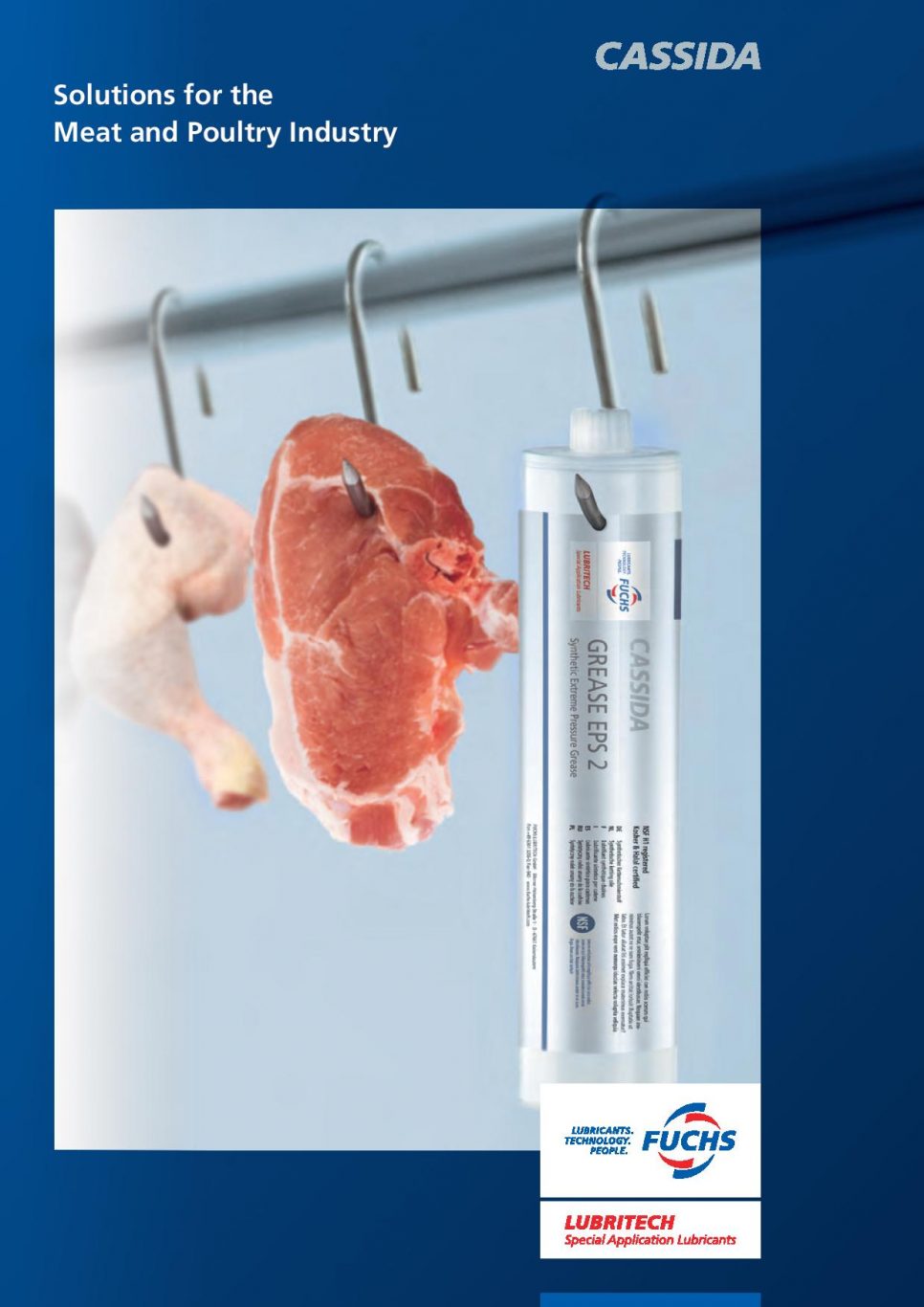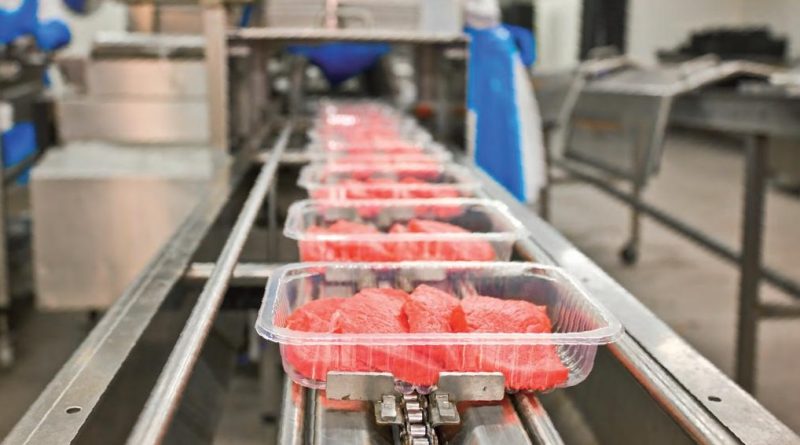Food Lubricant Certifications – A Crucial Health Factor
The recent listeriosis outbreaks, while not lubricants related, brought food safety into sharp focus. Lubricants are an integral part of the food production process and companies need to be serious about reviewing the risks.
There is a premium to be paid for food-grade lubricants due to their specialist nature. But numerous companies use inferior, cheaper products and only apply food grade products when forced to, placing consumers at risk.
As there is no international standard for food-compatible lubricants, it is normal practice to use the US standards issued by the FDA (USA Food and Drug Administration) and USDA (US Department of Agriculture) standards. The USDA ceased registration of lubricants in 1998, and this function was taken over by the private institution NSF International (previously known as the National Sanitation Foundation).
As South Africa becomes more international, international standards such as BRC, demand more rigorous adherence to food safety. Lubricants that should be used in a food production plant are known as H1 lubricants, or incidental contact lubricants.
These lubricants are not expected to, but may come into contact with food. H1 lubricants must comply with the 21 CFR 178.3570 regulation which establishes formulary requirements for greases and lubricants intended for use in food processing and handling applications where incidental contact may occur.
Another certification, ISO 21469 is an international standard for hygienic production of H1 and HT1 products. FUCHS Lubricants South Africa is the only plant in Africa to hold this certification. Accreditations required to produce food grade products are:
- NSF H1 is the basic minimum. This purely states that the ingredient of the
lubricants are not harmful in limited quantities but goes no further.
- Halaal
- Kosher
- ISO 21469.
CASSIDA, a subsidy of FUCHS Lubricants, was the first food grade lubricant brand in the world to achieve ISO 21469 certification (in May 2008) and as such set the standard for food safety. Today CASSIDA has certified production sites in Germany and the USA and its food production facilities are the most modern in the world.
ISO 21469 certification combined with NSF H1 registration offers food manufacturers the assurance that they will always have the safest food grade lubricant. For customers, this means that when the food manufacturing plant is audited for food safety according to IFS, ISO 22000 or others by organisations such as the BRC, TÜV, SGS or a major customer.
The auditors will recognise that the lubricants in use are in compliance with the highest safety standard and the risk can be eliminated or potential chemical or physical hazard sources in the plant’s HACCP.
This is a contribution by a lubricant manufacturer to the Global Food Safety Initiative (GFSI). Safe food and beverage manufacturing can only be achieved by applying strict hygiene rules by following detailed HACCP concepts.
Lubricants (oils and greases) cannot have any adverse effects on foodstuffs. This means that lubricants, which may accidentally come into contact with products intended for consumption as a result of leaks, which are not always technically avoidable, or the unsuitable design of equipment or machinery, must satisfy the most stringent requirements.
Purchasing a cheaper, no-name brand lubricant without the necessary certifications may be tempting, but can in fact put a company out of business. It is quite clear that during the manufacture of food, more stringent rules are applied in order to achieve the greatest level of purity and to avoid cross-contamination.
ISO 21469 Certification – A new certification programme
NSF Certification Programs are accredited by the American National Standards Institute (ANSI). As an ANSI accredited Certification body, NSF develops American National Standards and certifies products to internationally-accepted standards.
While the application of food-grade lubricants does not differ from other industries, there are more stringent requirements regarding hygiene and contamination. Machinery and equipment in the food industry do not in principle differ from those used in other industries, but the environmental influences may be considerably more complex.
There is a need for daily cleaning of machinery, sometimes with high-pressure water washing and aggressive cleaning or with sanitising fluids. There is possible contamination with active substances such as fruit juices and sugar as well as the impact of extreme temperatures, from shock freezing to wafer ovens (low to very high temperatures in short time periods).
Today’s H1 lubricants are high-performance lubricants, based on selected technical, pharmaceutical and medicinal mineral white oils or synthetic base fluids.
This and the fact that the manufacturer is allowed to use designated FDA chemicals only -and that the products should be manufactured in dedicated parts of a plant – is resulting in higher R&D and manufacturing costs, leading to more expensive products.
Using synthetic products, the higher price is often compensated by a longer product lifetime and lower overall maintenance costs. Speaking with customers in the food industry, one often encounters that H1 (i.e) food-specific lubricants, are viewed generally worse in quality than standard lubricants. They have said that lifetime and wear protection are problems, and application is difficult and problematic. This may have been the case 20 years ago, but today modern H1 lubricants are well designed and balanced high-performance products.
By using “synthetics” the user usually gets “cleaner” and safer products, superior performance, extended lubricant life and a rationalised portfolio. Invariably, less lubricant is used, there is reduced downtime, minimised waste and disposal, and extended machinery life. This results in lower overall maintenance costs and improved food safety.
Specialty products need specialty and dedicated staff in R&D, sales, production and technical support. The FUCHS Group has a strong focus on R&D with more than 400 chemists, engineers and specialists in more than 40 laboratories worldwide.
Staff are directly available and will provide services to customers with the most up-to-date knowledge about products, applications and related services. This ensures excellent customer service before, during and after the product is sold.
Maintenance and downtime costs should never be under-estimated. The correct use of dedicated lubricants may result in higher lubricant costs but will ultimately reduce the overall maintenance budget. The use of synthetic CASSIDA lubricants leads to better machinery protection, longer life times and less downtime, enhances food safety and brand protection.
[ Giles Cutter, Lubritech divisional manager at FUCHS Lubricants South Africa ]

Note:
Lubrication Critical Control Points Survey (LCCP)
Conducting LCCP surveys at your site is an important service FUCHS offers. It is a valuable addition to your existing HACCP system. Our customers can improve their food safety, rationalise their lubricants portfolio, reduce costs and protect their brand. HACCP systems are already mandatory in many countries and will become even more important in the future.
To support this approach, CASSIDA products in small packs are labelled with a dedicated colour code and sealed with special CASSIDA seals. This helps to prevent the use of the incorrect or non-food grade lubricants.
Also view:
To find out more about FUCHS lubricants, visit their website.




